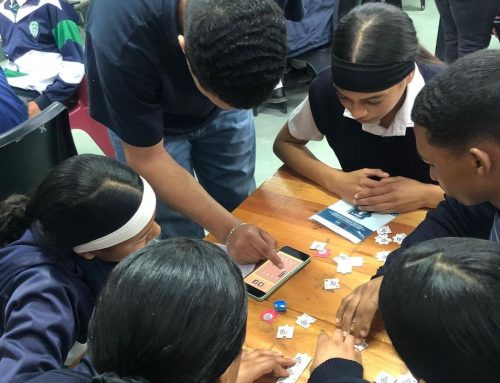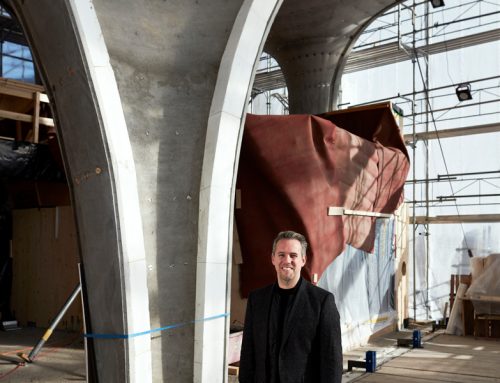This year, 2016, is the 11th year of the Nedbank Sport Affinity’s support of the Nedbank/Sports Trust Development Cycling Programme in the Western Cape, including the Boland and West Coast regions.
Since 2005, as a result of the programme, 1 186 high-school learners have participated in the Cape Argus Cycle Tour (now known as the Cape Town Cycle Tour or CTCT), which is the largest timed cycling event in the world.
Each year the programme has supplied bikes and supported the training and participation of over 80 learners from 12 high schools in disadvantaged communities in the Western Cape.
The CTCT attracts over 35 000 cyclists from all over the world, who join Nedbank’s teams on the starting line of the 108 km race in March each year.
‘Each year we equip and train approximately 200 learners in the Nedbank/Sports Trust Development Cycling Programme,’ says Mike Tippett, the director of development cycling at The Sports Trust, which manages Nedbank’s sports sponsorships.
In the 2016 event two of the development cyclists, Yulrich Portre and Grant Halloway, finished the race in under three hours. Portre’s time was 2,57 and Halloway’s was 2,59. The men’s winning time was 2,35; therefore Portre was only 22 minutes behind the winner and Halloway only 24 minutes behind.
‘While it is a great achievement and we are extremely proud to have 70 to 80, out of 200, competing annually in the Argus/Cape Town Cycle Tour, it worries us that the 130 who don’t qualify aren’t getting the same attention or competition experience,’ says Tippett.
Competing all year round
Tippett believes that all the cyclists identified for the programme should ideally be competing all year round in the schools league, the Spur Mountain Bike Series and the Community cycle races in various regions. One of the issues The Sports Trust is addressing in this regard is that the schools league requires road bikes, while the majority of the development cyclists are given mountain bikes because they are more practical for multiple uses, including getting to school and as general transport.
In addition to the 200 programme participants, there are thousands of high-school learners out there whom Nedbank and The Sports Trust would like to offer the opportunity to compete in local community races.
‘Cycling develops discipline and commitment, and it draws young people away from the alcohol and drug abuse, crime and gang warfare that many are subjected to in their communities. We strive to develop a healthy and balanced lifestyle,’ says Tippett.
Nedbank Community Cycle Races
To encourage greater participation in cycling, this year saw the launch of the Nedbank Community Cycle Races, in partnership with the Western Cape Department of Cultural Affairs and Sport. In 2016 they will host seven community cycle races in a range of communities, including those on the West Coast, and in the Boland and Cape Town metro regions.
In February 2016 the first race was hosted in Saldanha Bay and the whole community participated in the event, which also saw 130 of the Nedbank development cyclists competing.
‘Community races encourage participation in the sport. They help us identify talent and they give the development cyclists short-term competition goals every six to eight weeks. The beauty of these races is that community members can get involved in a number of ways – from cycling to marshalling to catering or simply enjoying the day,’ says Tippett.
Training programme and logistics
Working alongside Tippett in the management of the community cycle races and development cycling programmes throughout the year, including the training programmes and logistics – such as transporting the cyclists to races and ensuring that the bikes are kept in good order – is the Development Cycling Programme Manager at The Sports Trust, Cheryl Morris.
Tippett explains that their goal is to boost the number of high-school learners they bring into the sport, with all its benefits.
They will also be focusing on significantly increasing the number of girls participating in the programme. ‘We will be identifying why more high-school girls don’t participate and how we can turn this around. I’ll also be identifying what motivates the girls who do participate, and developing them as role models who can encourage more girls into our developing cycling programme,’ he explains.
An elite team of development cyclists
Tippett and Morris will also be investing individual time with the following five development cyclists, who are part of an elite team with the potential to be selected for Western Province and South Africa. The team is constantly growing and currently includes the following people:
Eben Dearling (19), who matriculated from Hex Valley High School in De Doorns in 2015, is a member of the De Doorns Development Cycling Club and is now working at Nedbank in Worcester.
- Grant Halloway (18), who is a learner at Oval North High School, Mitchells Plain.
- Yulrich Portre (17), who is a learner at Oval North High School, Mitchells Plain.
- Ronelle Maron (17), who is a learner at Beacon Hill Secondary School, Mitchells Plain.
‘We want to give them every opportunity to succeed at the highest level, with a structured training and nutrition programme, and all the right equipment. They will be competing in a range of cycling events over and above the Cape Town Cycle Tour, including the Discovery Duathlon in Cape Town on 23 April 2016 (which includes a 40 km cycle race and 15 km run) and the 202 km Coronation Double Century cycle race in Swellendam, Western Cape, in November,’ says Tippett.
Halloway is showing tremendous potential in both road and track cycling, and his ambition is to join a professional cycling team.
Dearling has consistently shone at the CTCT: ‘I started cycling at the age of 16 and my passion for the sport is as strong as ever,’ he says. ‘Through cycling I learnt about life’s uphills and downhills, the discipline of doing something even when you don’t feel like it, and the commitment to achieve goals.’
He is currently employed at Nedbank in De Doorns. Nedbank is committed not only to nurturing and supporting sporting ability, but also the programme participants’ holistic development and future careers.




